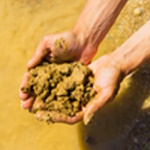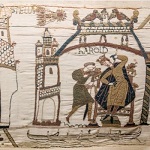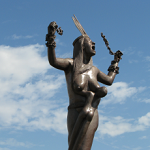Past IAS Major Projects
The IAS has supported 23 Major Projects since 2018/19.
2023/24 Projects
 Abusing Antiquity
Abusing Antiquity
This project seeks to investigate the colonisation of the classical past by a spectrum of political forces, ranging from the conservative Right to neo-Nazi and white-supremacist groups in Europe and the UK.
 In Absence of Others
In Absence of Others
This project seeks to determine the daily consequences of hybrid working managers’ solitude and loneliness on their daily leader identity, wellbeing, and subsequent behaviours.
 Justice and Artificial Intelligence
Justice and Artificial Intelligence
This project addresses a number of legal and ethical issues raised by reliance upon deep neural networks and cognate technologies as decision-making tools in many aspects of society. It aims to foster a community of interest in these and related issues locally, nationally and globally.
 Understanding Offence: Delimiting the (Un)sayable
Understanding Offence: Delimiting the (Un)sayable
The project will interrogate offence from multiple disciplinary perspectives to deepen comprehension of the phenomenon, and elucidate what is involved in giving and taking offence. It will examine the term’s conceptual slipperiness and the context-dependent nature of understandings of offence, and analyse the complexities inherent in attempting to formulate normative definitions of offence that can be applied in legal or other regulatory frameworks.
2022/23 Projects
Three major projects were supported in 2022/23, along with several research development projects.
The Politics of Credibility
Opportunities in Pollution
Risks to Youth and Studenthood in Digital Spaces
2021/22 Projects
Representing Memory
The project aims to explore how memory is represented in a variety of situations. Since the cognitive revolution of the 1960s memory has been considered as the encoding, storage and retrieval of information.
 Mind the Gap
Mind the Gap
Exploring the Differences in Access to Social and Cultural Capital Between Advantaged and Disadvantaged Children (a UK/USA Comparison).
 Firing up the Epistemological Engine
Firing up the Epistemological Engine
We propose to explore one component of the Durham Epistemological Engine (DEE), by developing methods to automate the processes involved in a literature review.
 Enabling Responsible Space Exploitation
Enabling Responsible Space Exploitation
The project brings together stakeholders to discuss the implications of ‘democratising Responsible Space Exploitation space’ and to identify the opportunities, challenges and barriers to creating an environmentally, economically and socially sustainable space industry.
 Exploring Arctic Soundscapes
Exploring Arctic Soundscapes
The Exploring Arctic Soundscapes project will develop new practices for fusing scientific and artistic invocation and explanation of Arctic environments.
2020/21 Projects
 Negotiating Landscapes of Rights
Negotiating Landscapes of Rights
This interdisciplinary project examines the negotiation of rights around common resources by involving archaeologists, lawyers, historians, geographers in a series of case studies taken from around the world.
 Quantifying Global Risk
Quantifying Global Risk
This project drew together an expert inter-disciplinary team to perform the first review of lessons learned, remaining challenges, engineering solutions, and financial models for coping with the next event(s).
 Threshold Worlds
Threshold Worlds
Cognitive research on dreams has experienced a new wave of interest in recent years. Multiple methodologies are combined to chart more systematically the landscape of dream-worlds.
2019/20 Projects

Antibacterial Clay Therapy
Antimicrobial resistance is a global concern requiring innovative and imaginative approaches to combat the threat to human health.

Science, society and environmental change in the first millennium CE
Bringing together scholars in sciences, social sciences and humanities, this project explores scientific and social responses to natural phenomena in the context of what is now known about environmental and climate change in the first millennium CE.
 Mediation for the Twenty First Century
Mediation for the Twenty First Century
New mediation, framed as conflict prevention, needs to be concerned not only with ending violence but with re-building fractured societies and creating the conditions that will prevent conflict from recurring.
 Material Imagination
Material Imagination
The recent advances in genetic engineering and material science provide a unique opportunity to create materials that fuse the intelligence of living organisms and the robustness and designability of non-living matter.
2018/19 Projects

Who are “We the People”?: Community beyond the state.
“The people” are sovereign; “the people’s will” must prevail; but who are “the people”? Who gets to belong to this group, and who decides? How do individuals coalesce into a collective “people”, and what other communities are formed in the same way?
 Dynamic Interactions at Cell Membrane Interfaces
Dynamic Interactions at Cell Membrane Interfaces
Membrane Nanoparticles (MNPs) are small vesicles ubiquitously released into bodily fluids from cells. They have therapeutic potential in immune therapy, vaccination, regenerative medicine, drug delivery, personalized medicine and point-of-care market (projected £1 billion/year by 2022).
 An Abolitionist Industrial Complex: Patterns of anti-trafficking/anti-slavery policy and practice in the 21st century.
An Abolitionist Industrial Complex: Patterns of anti-trafficking/anti-slavery policy and practice in the 21st century.
The project will bring together scholars from a range of disciplinary (and cross-disciplinary) backgrounds to develop a methodological approach for tracing the contours of the global anti-trafficking / anti-slavery field. Anti-trafficking / anti-slavery policy and practice have been expanding over the last two decades but critical analysis has often been limited to particular actors (or groups of actors).
 Masculinities in Martial Sports: West, East and Global South
Masculinities in Martial Sports: West, East and Global South
Masculinities in Martial Sports investigated, through an interdisciplinary, trans-national methodology ‘hard and masculine’ sports from different areas of the globe, and their relationship to the shaping of gender orders. Kushti (Indian wrestling), Japanese Aikido and Western boxing form the subject sports.


/prod01/prodbucket01/media/durham-university/research-/research-institutes/institute-of-advanced-study/43486-hero.jpg)
/prod01/prodbucket01/media/durham-university/research-/research-institutes/institute-of-advanced-study/research/Politics-of-Credibility---IMAGE-01-258X350.jpg)
/prod01/prodbucket01/media/durham-university/research-/research-institutes/institute-of-advanced-study/research/DURH---0033---IAS-Infographics---Pollution-DIGITAL-250X350.jpg)
/prod01/prodbucket01/media/durham-university/research-/research-institutes/institute-of-advanced-study/research/Studenthood-in-Digital-Spaces-Infographic-DIGITAL_Page_1-258X350.jpg)
